8 Best Vitamin C Serums for Women Over 50 That Brighten Skin, Smooth Wrinkles and More
Adding a serum to your skin care routine is an easy way to target aging skin care concerns, and there's one serum ingredient that reins supreme — vitamin C. Serums infused with vitamin C are true multi-taskers because the ingredient can brighten dull skin, even out tone and even reduce the appearance of wrinkles. But with an array of options available, choosing the right vitamin C serum can feel overwhelming. Fear not! This comprehensive guide will tell you everything you need to know about these magic in a bottle elixirs. Here, the benefits of using one, what to look for, how to add one to your routine and the best vitamin C serums that will work for you.
The skin benefits of vitamin C
It's a powerful antioxidant
New York City-based dermatologist Joshua Zeichner, MD, says vitamin C is perhaps the best studied and most potent antioxidant we have for topical application. “It’s a potent antioxidant that neutralizes free radical damage from the environment,” he explains. “Think of it as an insurance policy on your sunscreen that helps prevent damage caused by UV rays, despite our best efforts in protecting our skin from the sun with sunscreen.”
It evens skin tone
Vitamin C also blocks production of abnormal pigmentation, notes Dr. Zeichner. “It can help brighten the complexion and even skin tone," he says. "Plus, it’s an essential cofactor for the production of healthy collagen.”
Related: Skin Lightening vs. Skin Brightening: Which Approach Is Right for You?
It addresses other visible signs of aging
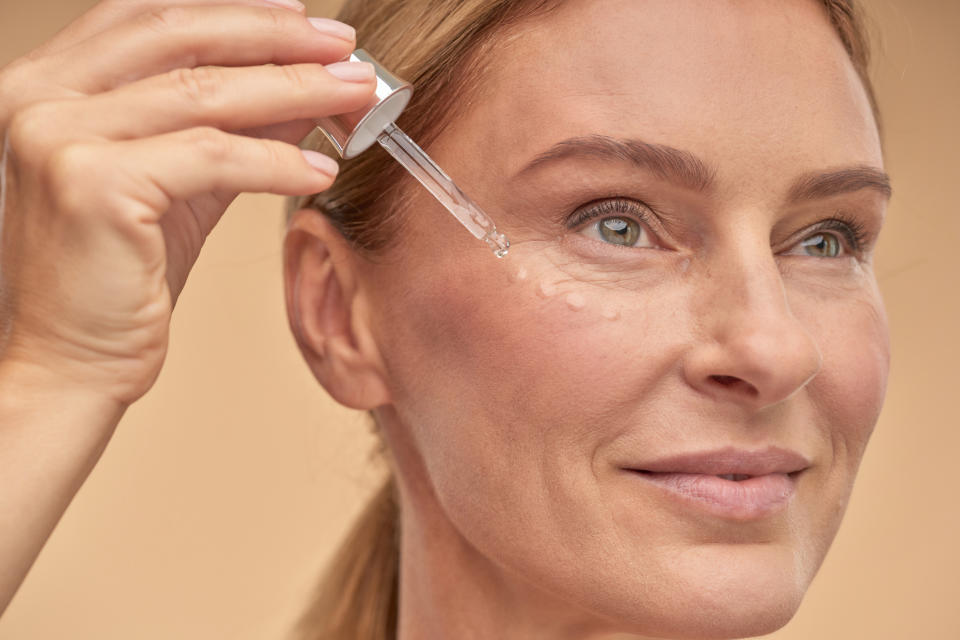
Vitamin C serums can help smooth fine lines by plumping and hydrating skin, especially in the under-eye area, says Cincinnati-based dermatologist Alexandra Bowles, MD. “Doing so helps to reduce the appearance of dark circles under the eyes. While not a substitute for sunscreen, vitamin C can enhance the effectiveness of sunscreens by providing additional protection against UV damage.”
It helps restore skin's natural vitamin C levels
“Unfortunately, environmental pollutants like ozone, smoking and UV radiation can damage or deplete vitamin C in the skin,” says Tiina Meder, MD, dermatologist, cosmetic safety expert and founder of Meder Beauty. And add that to the fact that natural vitamin C levels decline with age for reasons that remain unclear. "In photo-damaged skin, epidermal vitamin C levels decrease by 31%, and in aged skin, by 39%," she says. "Similarly, dermal levels decrease by 37% in photo-damaged skin and by 30% in aged skin, contributing to the formation of wrinkles, loss of elasticity, and other signs of aging." So adding the nutrient back into skin can boosts its levels and help reverse aging skin concerns.
Related: MDs Share the Best Menopause Skin Care Routine + Products for Women Over 50
Watch the below YouTube video from dermatologist Sam Ellis, MD for more vitamin C skin benefits.
What to look for in a vitamin C serum
Keep scrolling for the things you should keep in mind when selecting a vitamin C serum.
1. The type of vitamin C
Vitamin C serums come in two main forms, pure ascorbic acid and vitamin C esters. “Pure ascorbic acid is the active form of vitamin C,” says Dr. Zeichner. “However, it can be difficult to stabilize, as it requires an acidic pH, and must be protected from the sun to prevent degradation. This is why many vitamin C, serums, come in amber-colored or opaque bottles.”
And vitamin C esters are lipophilic or oil-soluble forms. “They have names that contain the words ascorbyl or ascorbate in them,” explains Dr. Zeichner. “Vitamin C esters are converted into pure ascorbic acid after they are applied to the skin." Plus, he adds that they are much better tolerated and are more stable and easier to formulate into commercial products as compared to pure ascorbic acid.”
2. Other antioxidants
Although it's an antioxidant itself, vitamin C is typically paired with other antioxidants for synergistic benefits and to help maintain stability of the vitamin C itself, says Dr. Zeichner. “For example, vitamin C is most commonly paired with vitamin E. Think of the pair like a rechargeable battery, as the two ingredients help support each other’s activity and stability.”
3. Keep your skin type in mind
Dr. Bowles advises that you consider your skin type and preferences when selecting a serum texture. “Vitamin C serums come in various consistencies, including lightweight liquids, gel-like textures, and creamy formulations,” she advises. “Choose a texture that feels comfortable on your skin and integrates well into your skincare routine.”
4. Avoid water-based vitamin C serums
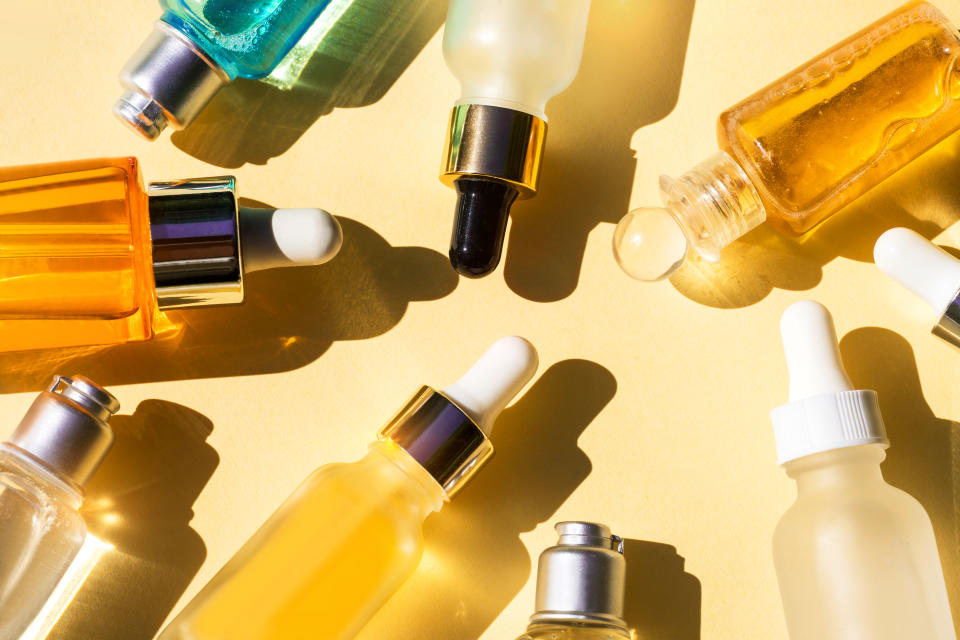
Dr. Meder says to handle water with care when it comes to your vitamin C serum. “Many vitamin C variants oxidize upon contact with water. Choose creams, emulsions or gels devoid of water among the primary ingredients listed on the label,” she says.
5. How much vitamin C is in the serum
And added to the point above, Mona Foad, MD, a board-certified dermatologist in Cincinnati and founder of Mona Dermatology, says to consider the concentration level. “Serum vitamin C concentration can vary, typically ranging from 5% to 20%," she says. "Higher concentrations may provide more noticeable results but can also increase the risk of irritation, especially for sensitive skin. Start with a lower concentration and gradually increase if your skin tolerates it well,” she explains.
Dr. Foad also says that you should consider the vitamin C serum’s pH level. Vitamin C is most effective at a pH level below 3.5. “Look for serums with a pH between 2.5 and 3.5 to ensure optimal absorption and stability of the vitamin C,” she says. And like Dr. Zeichner mentioned previously, additives like vitamin E and ferulic acid can help stabilize and increase penetration of the vitamin C serum you're using.
How to use a vitamin C serum
At what point in your skincare routine should you apply your vitamin c serum — and how often to use it? Dr. Zeichner recommends applying vitamin C serums in the morning to help protect the skin from the environment and prevent damage from environmental exposures like UV light and pollution. “I recommend layering vitamin C under your sunscreen every morning,” he says.
Dr. Bowles agrees, and adds that if you're applying the vitamin C serum in your morning skincare routine, finish with a broad-spectrum sunscreen with SPF 30 or higher. “Vitamin C can enhance the effectiveness of sunscreen and provide additional protection against UV damage,” she explains.
That said, if you prefer to use vitamin C at nighttime, you can still reap its benefits for collagen production and skin repair, notes Dr. Bowles. “If you're new to using vitamin C serum or have sensitive skin, start by using it every other day and gradually increase to daily use as your skin adjusts," she says. "Monitor your skin for any signs of irritation, and if you experience redness, itching, or discomfort, reduce the frequency of use or discontinue use altogether.”
Related: “I Tried Skin Cycling and Was Amazed at How Smooth and Glowing My Skin Looks Now”
The best vitamin C serums
Read on for the expert-approved vitamin C serums that hydrate, brighten, protect and more.
Best overall vitamin C serum
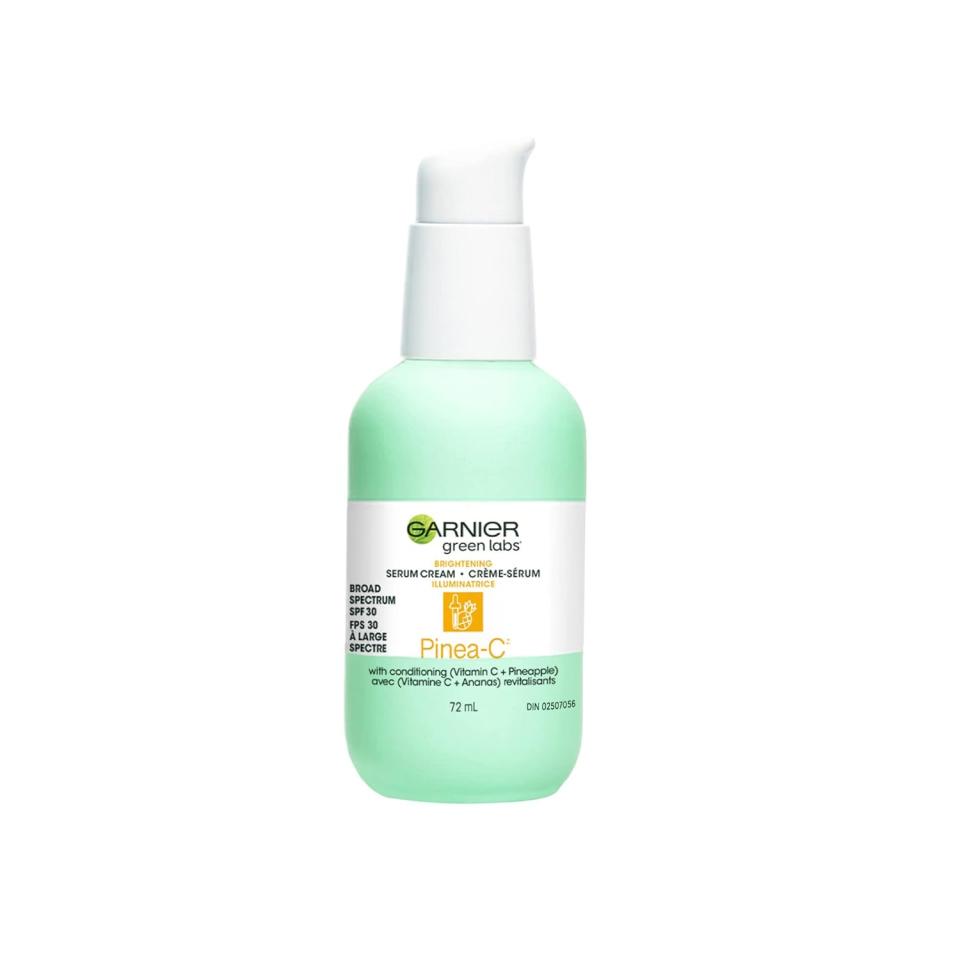
Garnier Pinea-C 3-in-1 Brightening Serum
Dr. Zeichner is a fan of this serum from Garnier. It's a budget-friendly option that also offers hydration and UV protection that's great for daily use, he adds.
Best drugstore vitamin C serums
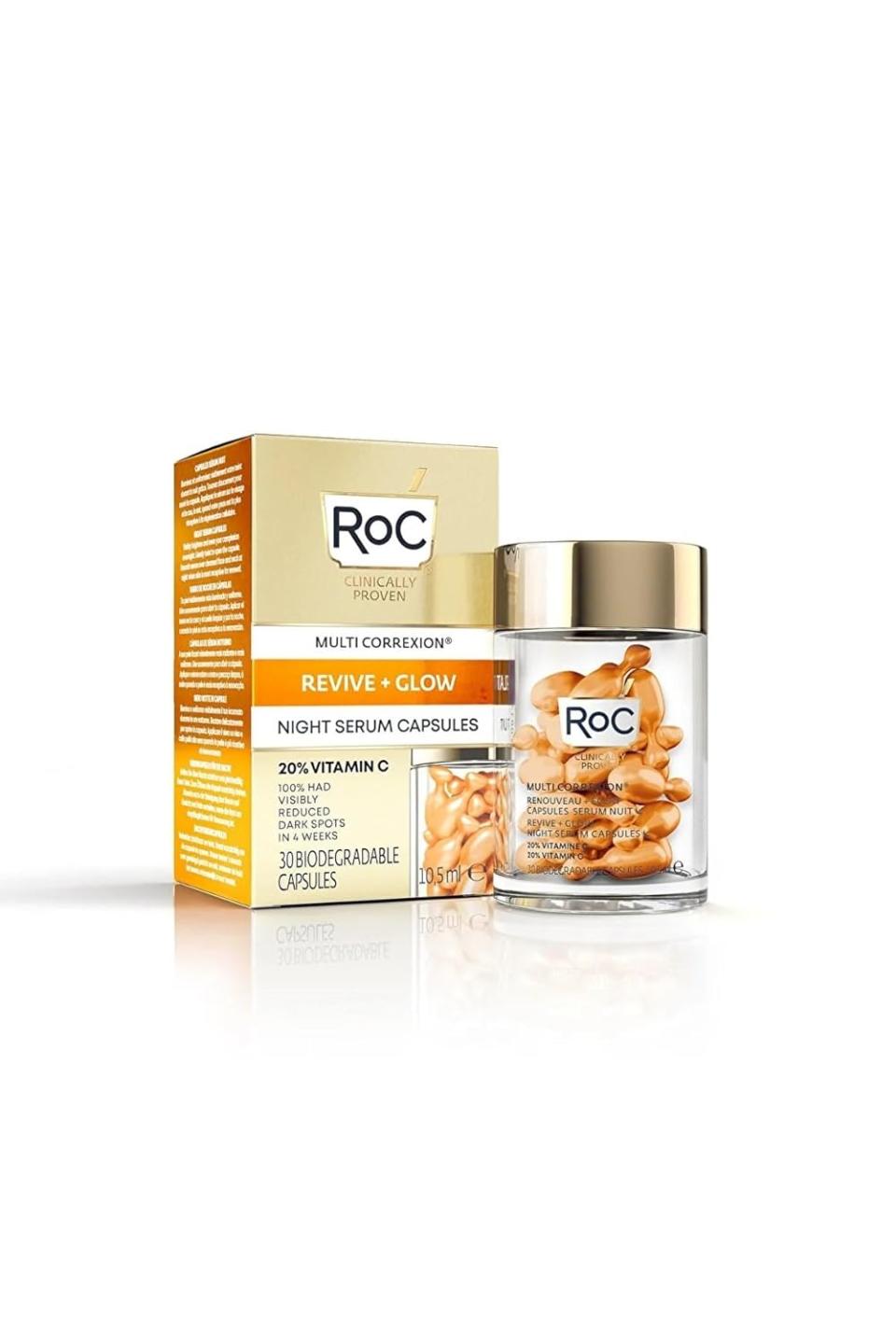
RoC Multi Correxion Revive and Glow Vitamin C Capsules
You may see serums that come in capsule form at the drugstore and Dr. Zechnier says they are a great ption. That's “because they maintain potency of the vitamin C itself until you are ready to use them," he says. "Plus, each capsule delivers the exact amount for use over the entire face."
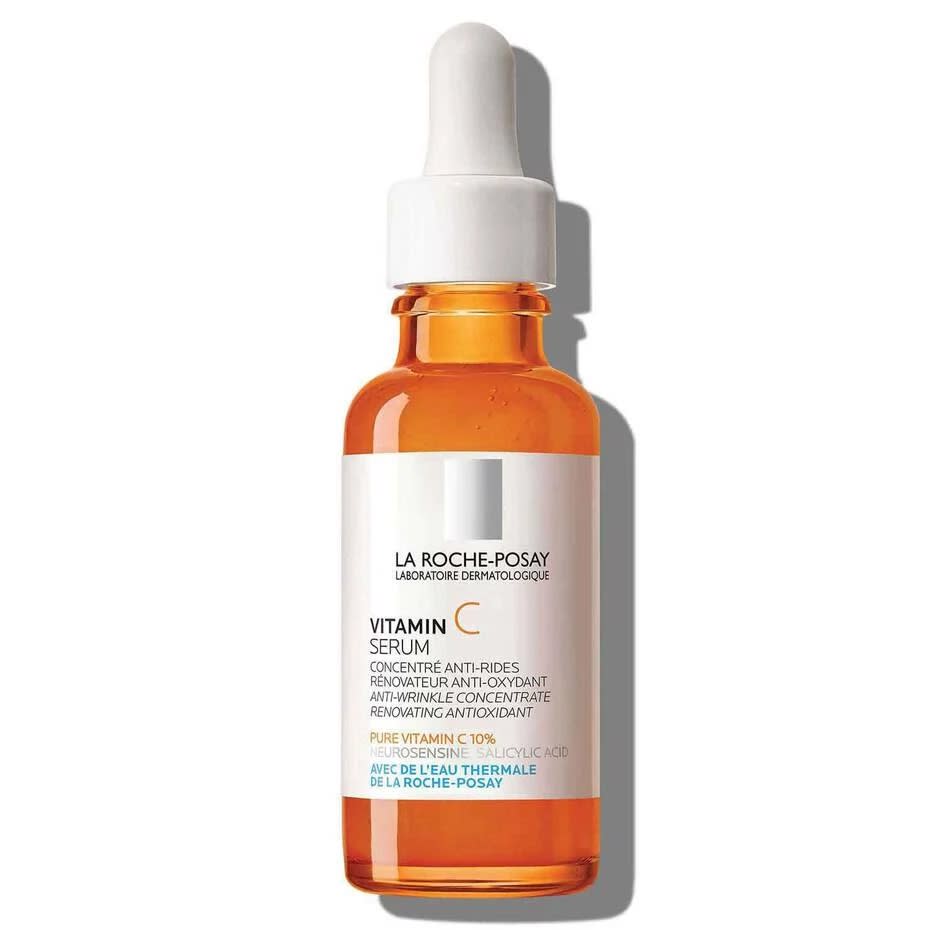
La Roche-Posay 10% Pure Vitamin C Serum
Dr. Foad recommends this affordable serum, which she says is good for those with acne-prone skin. Why? It's formulated with the water soluble form of vitamin C, ascorbic acid, as well as some salicylic acid to help with acne and exfoliation.
Best splurge vitamin C serum
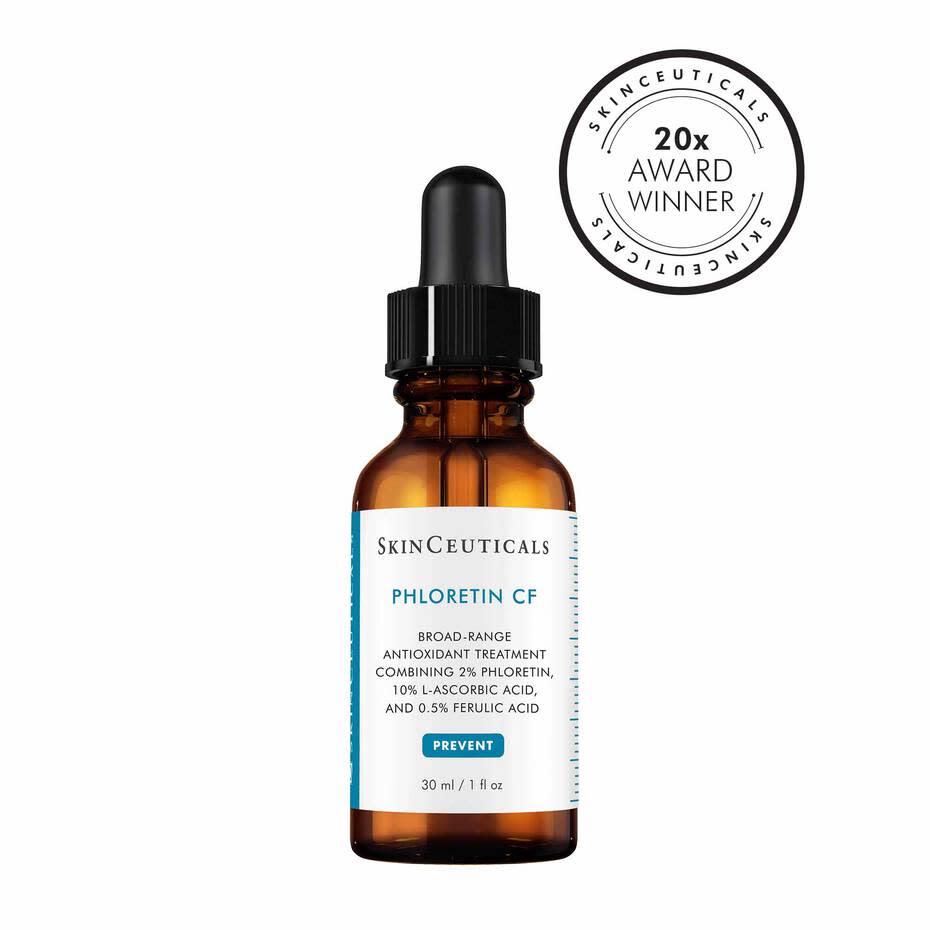
SkinCeuticals Phloretin CF with Ferulic Acid
For a splurge-worthy serum, Dr. Foad points to this one. “It helps brighten the skin, reduce fine lines and wrinkles, and protect against environmental damage," she says. "Despite being pricier, its efficacy and proven results make it a favorite among skincare enthusiasts and professionals."
Best vitamin C serum with SPF
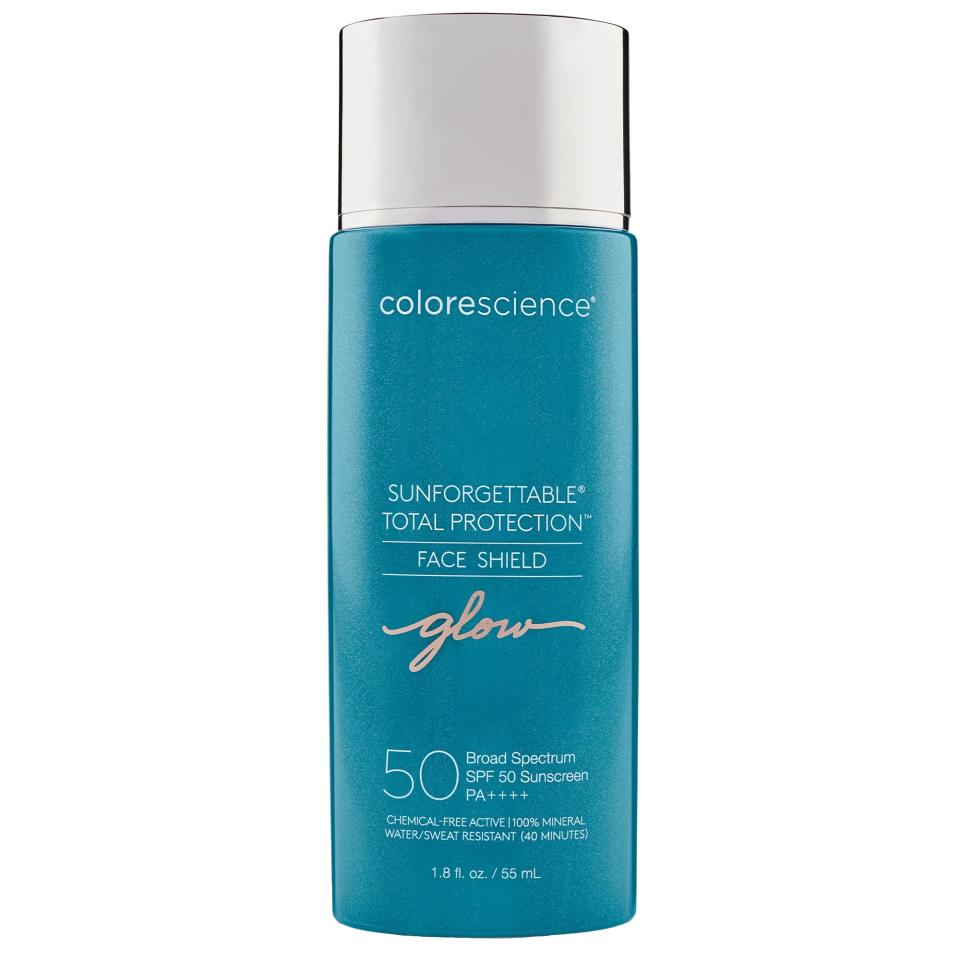
ColoreScience Sunforgettable Total Protection Face Shield Glow SPF 50
Sunscreen shouldn't be skipped, but for a vitamin C serum with added sun protection, Dr. Bowles likes this ColorScience option. “This antioxidant-rich mineral protector protects against UVA/UVB, pollution, blue light, and infrared radiation," she says. And "the formula is hydrating while providing a pearlescent, illuminating skin glow."
Best vitamin C serum for dry skin
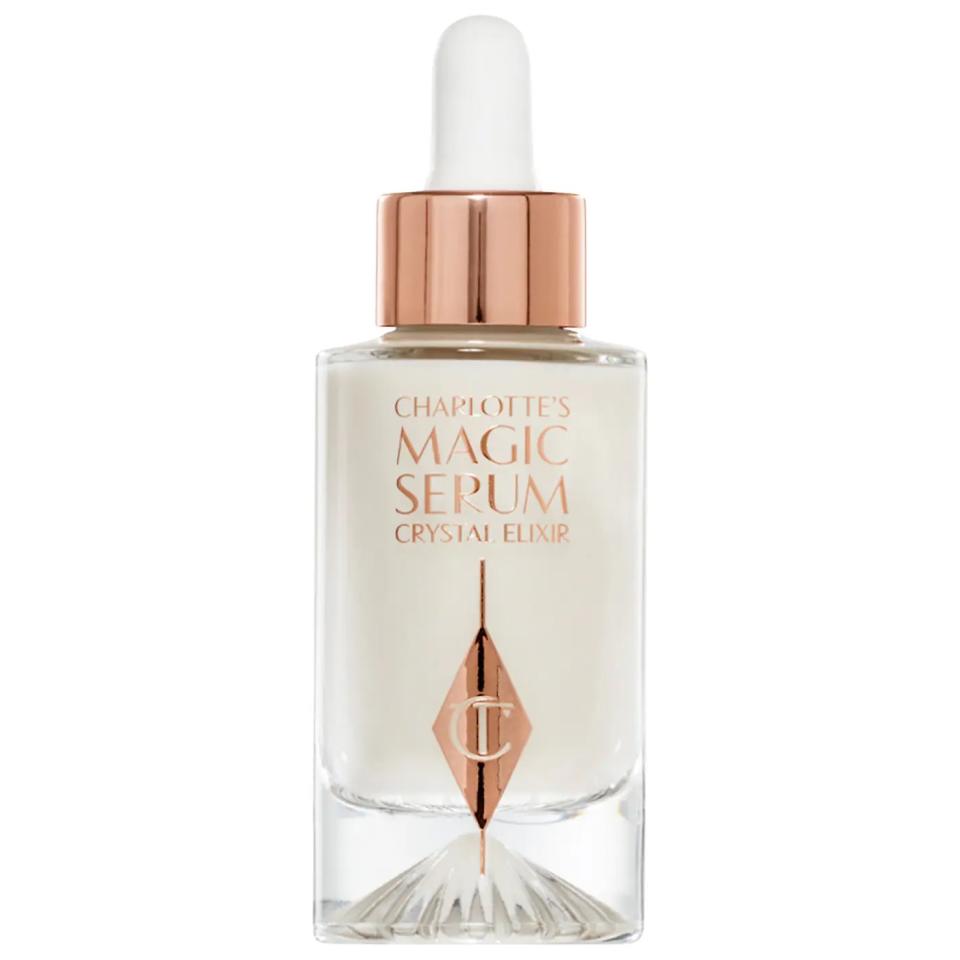
Charlotte Tilbury Magic Serum with Vitamin C
This serum “combines pure vitamin C in a gold stabilized technology to improve efficacy," says Dr. Zeichner. And "the formula also contains polyglutamic acid and niacinamide for additional skin brightening and calming benefits.”
Best vitamin C serum for sensitive skin
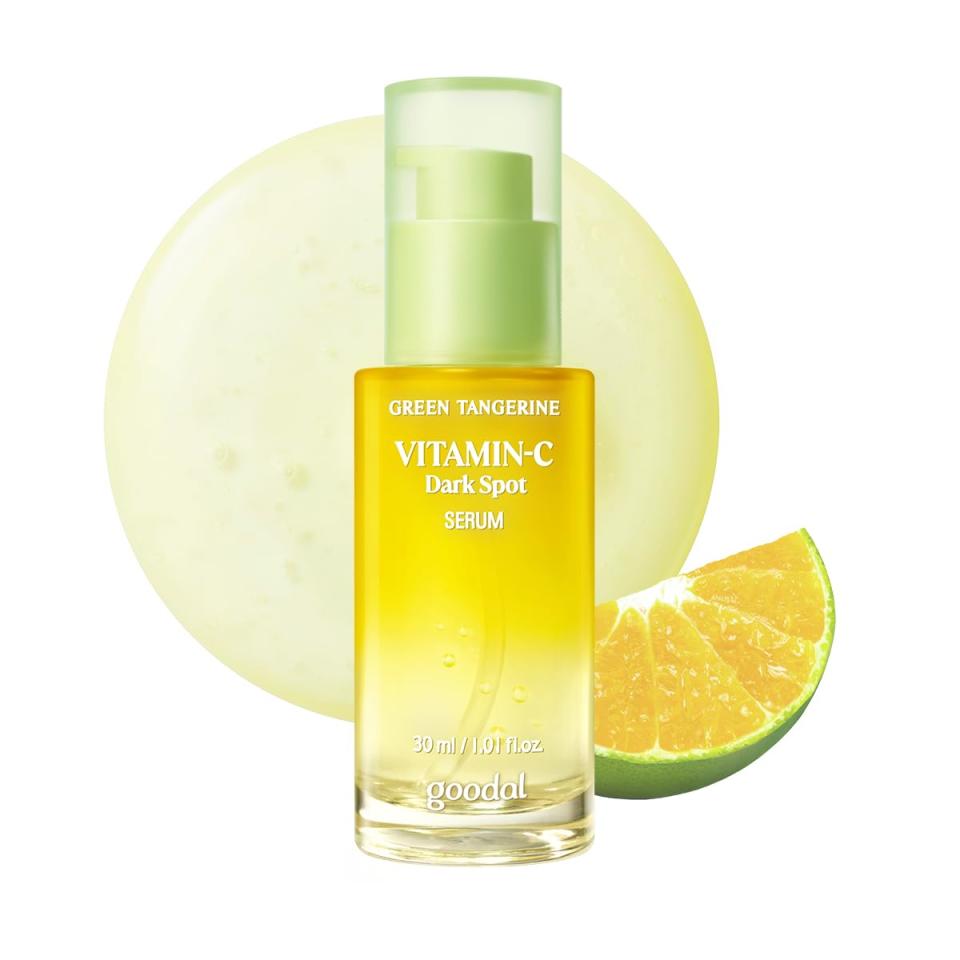
Goodal Green Tangerine Vitamin C Serum
To soothe skin and thwart future irritation, look to this serum from Goodal. It's packed with a green tangerine extract, 4% niacinamide and arbutin — all ingredients that help brighten skin. Best of all, it's calming ingredients like centella asiatica (tiger grass) ensure skin doesn't become inflamed.
Best vitamin C serum for dark spots
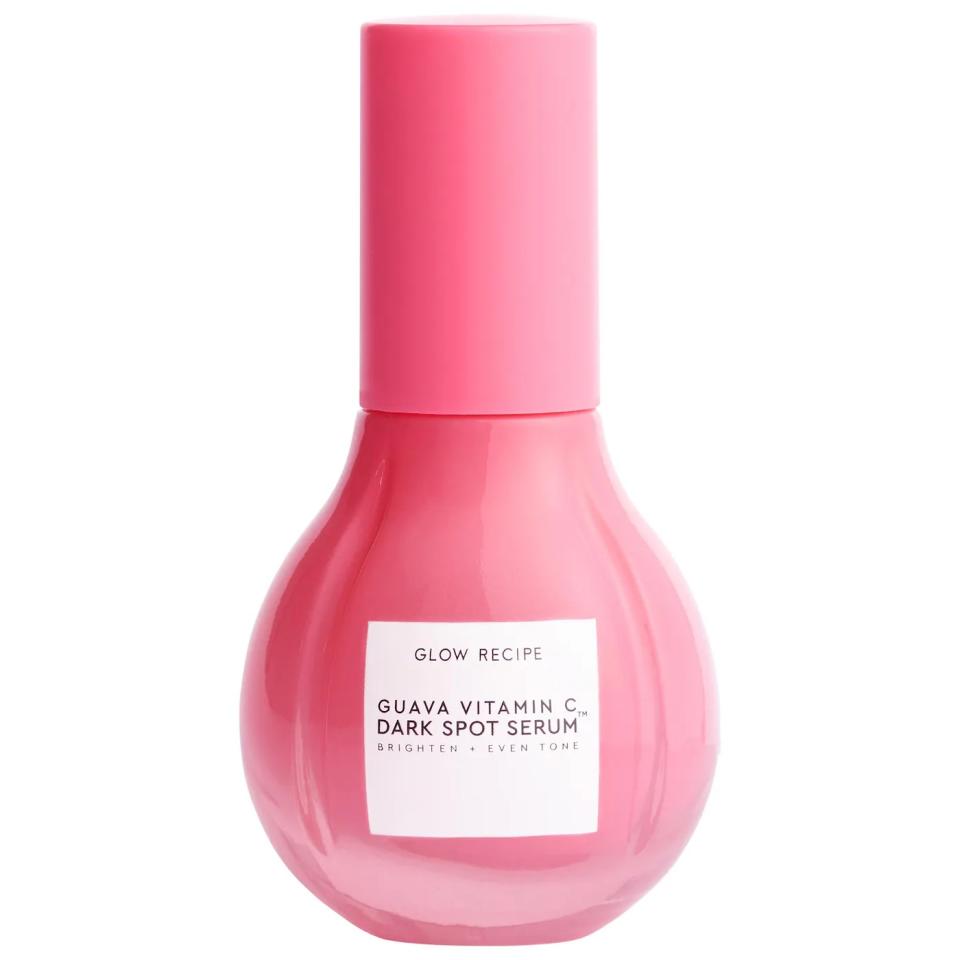
Glow Recipe Guava Vitamin C Dark Spot Brightening Treatment Serum
“This serum contains multiple forms of vitamin C along with tranexamic acid for synergistic benefits in brightening the skin,” says Dr. Zeichner. Plus, it sinks into skin quickly and doesn't feel sticky.
For more skin care tips and tricks:
Squalane Skin Benefits: Pros Share Why This Ingredient Works Well for Women Over 50
How to Get Rid of Textured Skin: What Women Over 50 Need to Know for Smoother, Youthful Skin
Glass Skin Is the Viral Beauty Trend That’ll Leave You Glowing — Here’s How to Get It
